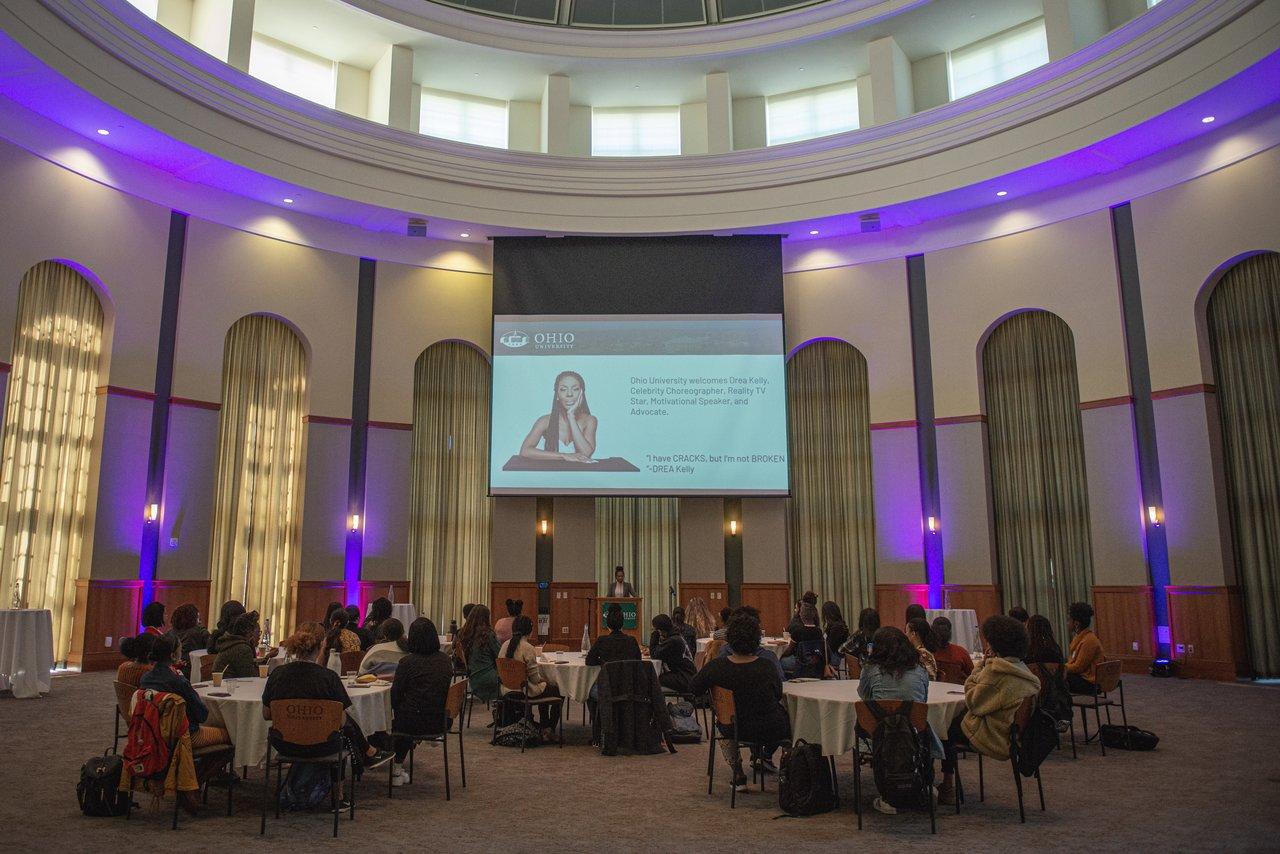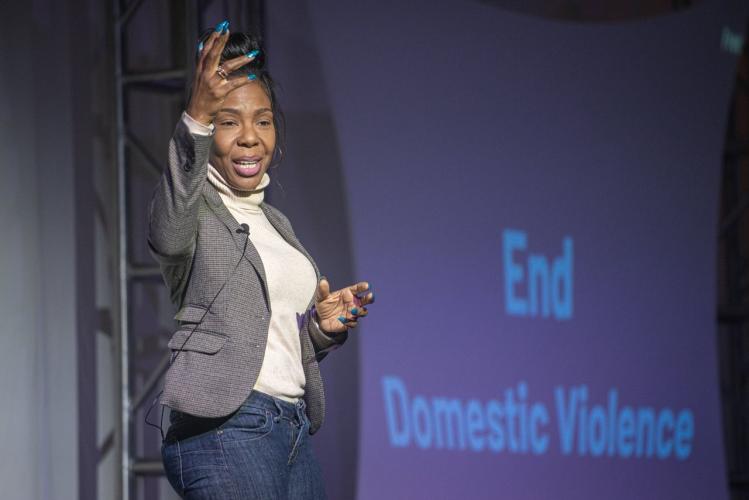
Drea Kelly, ex-wife of R. Kelly, speaks to OHIO community about journey to healing

Every year, Ohio University provides special programming throughout the month of October to recognize Domestic Violence Awareness Month. This year, OHIO’s Women’s Center and its partnering organizations — including Counseling and Psychological Services, the Survivor Advocacy Program and Health Promotion — were hopeful that they could secure Drea Kelly, ex-wife of R&B superstar R. Kelly, to speak on her journey to healing — but they weren’t positive they could make it happen.
The fact that it did is a “testament to the incredible support” the Women’s Center and other organizations across campus receive, according to Dr. M. Geneva Murray, director of the Women’s Center.
Kelly, a self-described “brown girl from the southside of Chicago,” spoke to the OHIO community on Oct. 24 during an OHIO 365 Conversation titled, “Creating Public Awareness to End Domestic Violence.” The event, which was free and open to the public, saw a crowded Baker University Center Ballroom as dozens of students gathered to hear Kelly discuss her journey to healing.
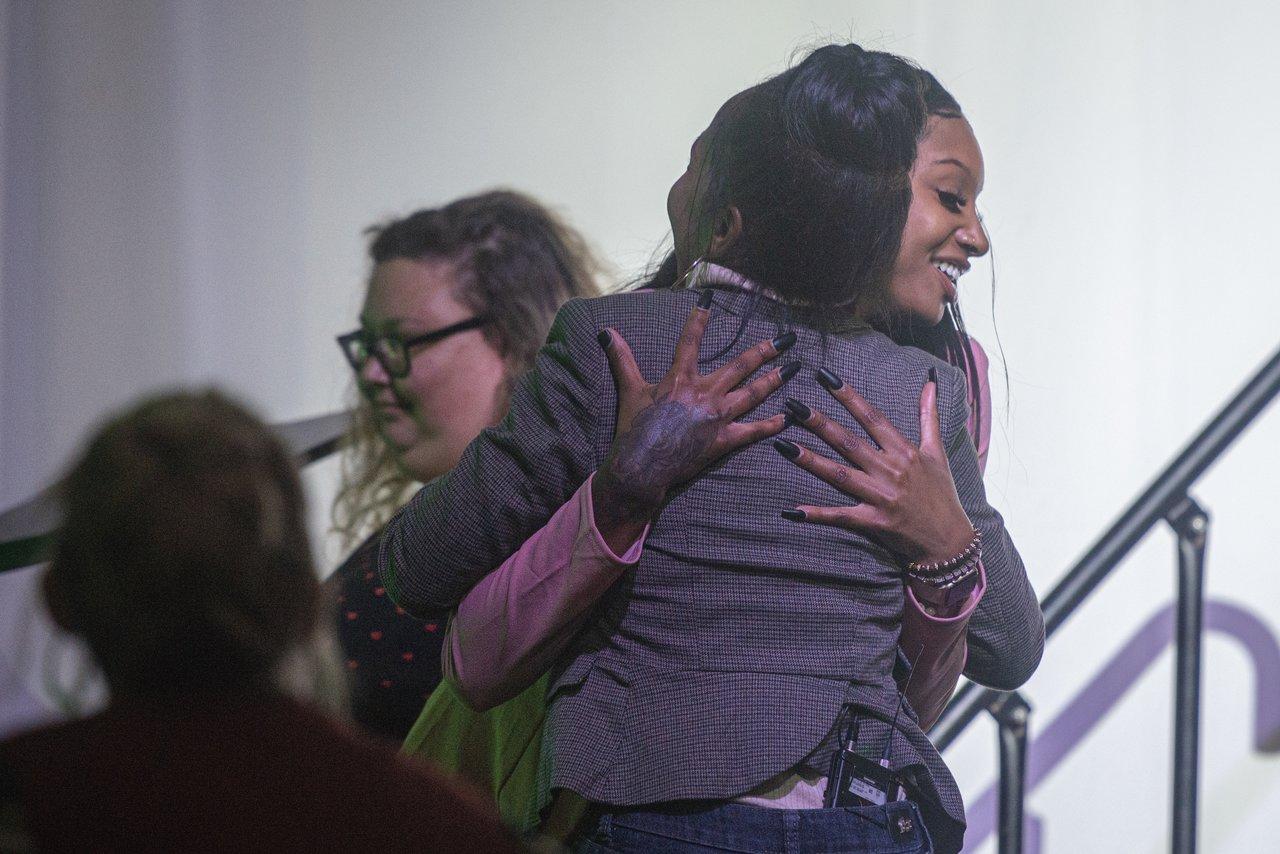
The goal of her talk was to start the conversation about domestic violence, not just through a hashtag, but through a plan of action to eliminate abuse and violence from relationships and also eradicate sex trafficking.
Kelly spoke about what it was like to have her boss turn into her boyfriend, her boyfriend into her husband, and her husband into her abuser.
“That was a very, very, very dark part of my life,” Drea Kelly said of her time with R. Kelly. “This girl is in her light right now; he doesn’t get to share my light.”
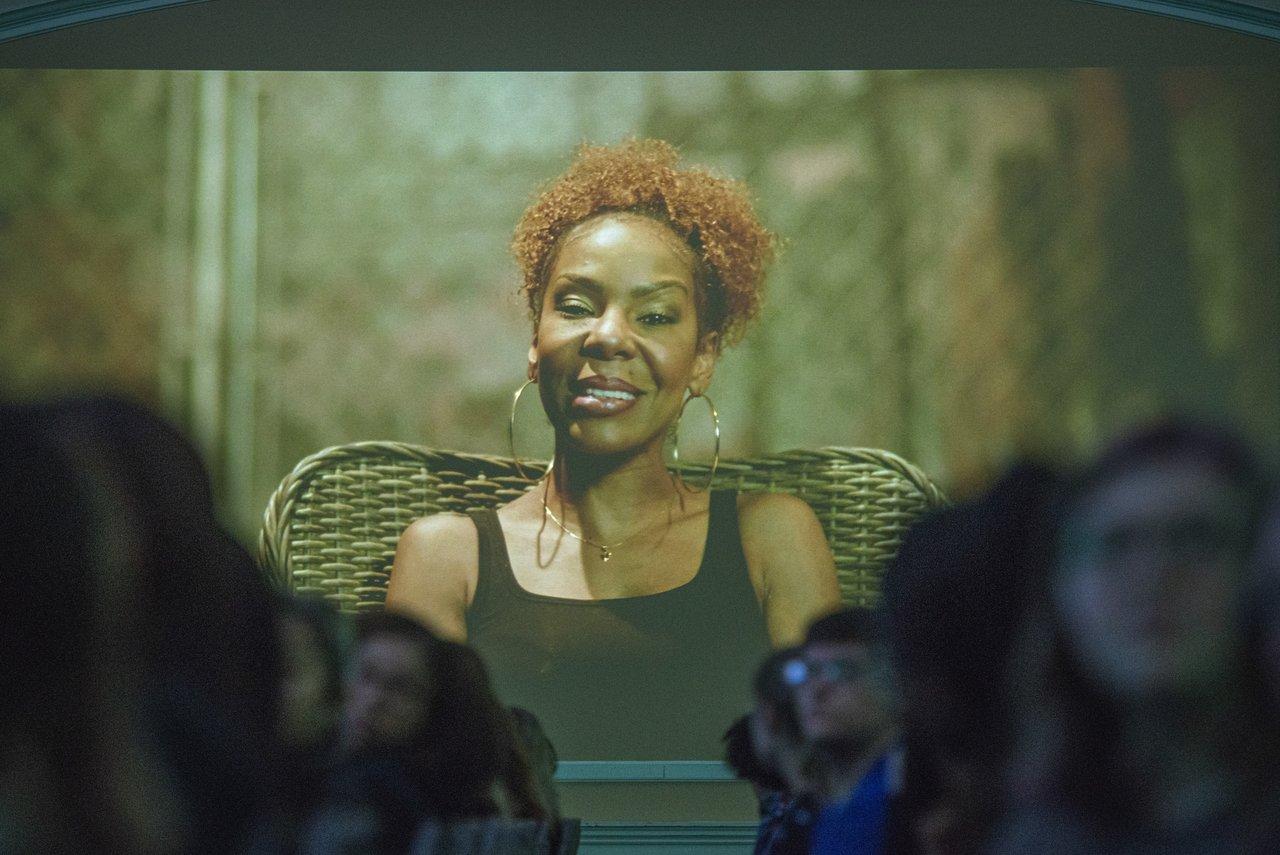
During her talk, Kelly, a survivor of domestic violence, highlighted learned behaviors from her abuser and the warning signs of a volatile relationship. The survivor said 85,000 women a year in the United States lose their lives to domestic violence.
“And to think I could have been one of that 85,000,” Kelly said. “So yes, I will use this name, I will use my platform, I will stand in the gap for those women who feel like (they) don’t have (their voice), (they) don’t know what to do, (they) don’t know where to go, (they) don’t know how to start.”
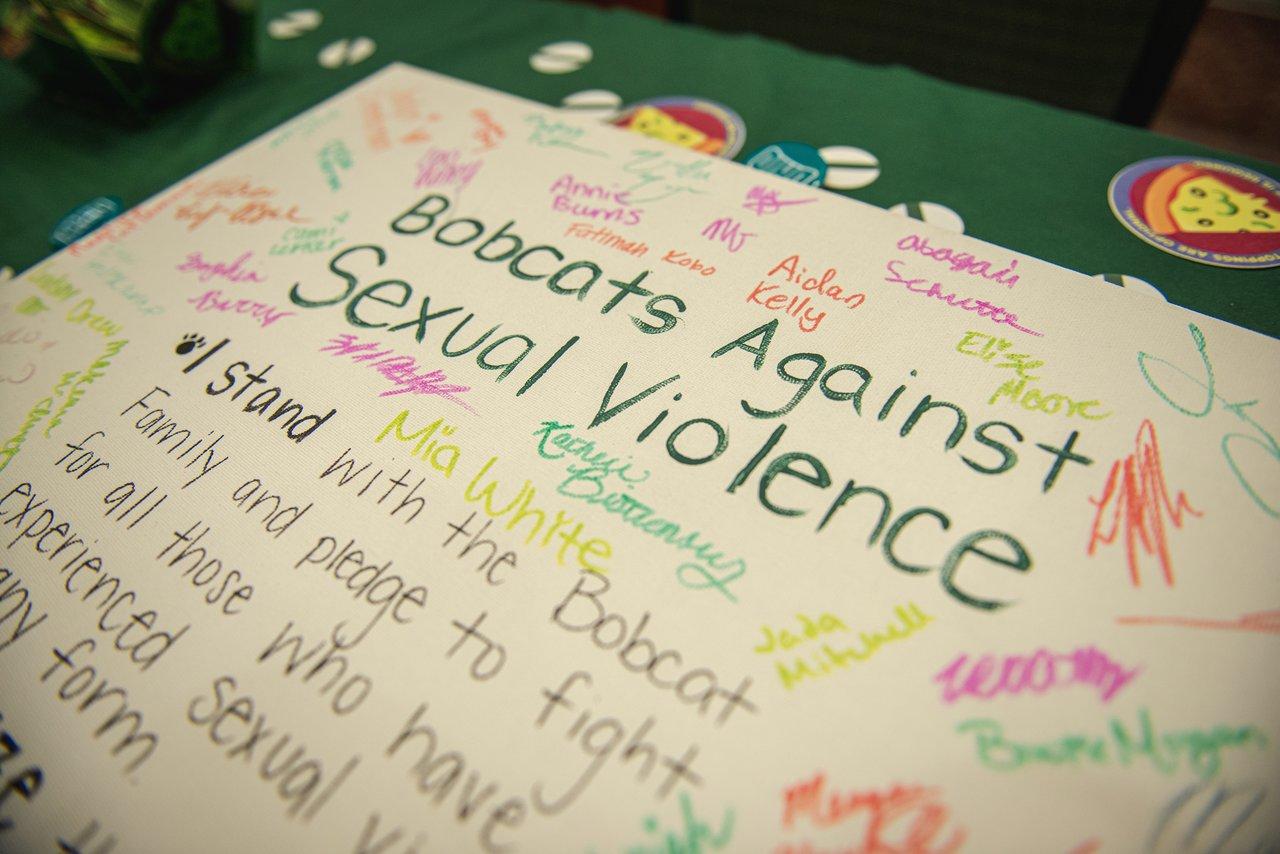
Kelly explained that “the thing about abuse” is that society has an “it’s not that bad syndrome.” However, she noted the physical abuse is the aftermath of all of the financial, emotional and psychological abuse victims of domestic violence have already been through.
But yet, many say, “It’s not that bad.” Kelly said it typically begins when survivors describe their partner as jealous with an aggressive tone, but “he’s never put his hands on me.”
That abuse escalates to hair pulling, arm grabbing, slapping “only when he’s mad,” or, “he punched me this one time,” or, he punched me but “he doesn’t do it in front of my kids,” and so on, until it’s too late.
“Until we get to the point of slow signing and flower bringing, that’s when we say it’s that bad,” Kelly said. “When we’re all dressed in black and we’re at a funeral. We talk about how much we loved them, how sweet they were, how energetic she was, ‘she was such a people person,’ that’s when we say, ‘oh now it’s that bad.’
“No, sweetheart, it was that bad way back here,” she continued. “It was bad the first time you had to dim your lights for him to shine brighter, it was that bad the first time he walked into a room and you felt intimidated and you looked inward and felt like you needed to shrink to make him feel bigger.”
In those instances, Kelly explained, it was “that bad,” but by the time many think it’s too bad, it’s too late. They need to know the difference, Kelly said.
“You have to be real with yourself, and I have to be real with you as a survivor; I’m not going to get up here and tell you, ‘oh, it was horrible the first time he put his hands on me.’ No, it was that bad way back here when I was being criticized.”
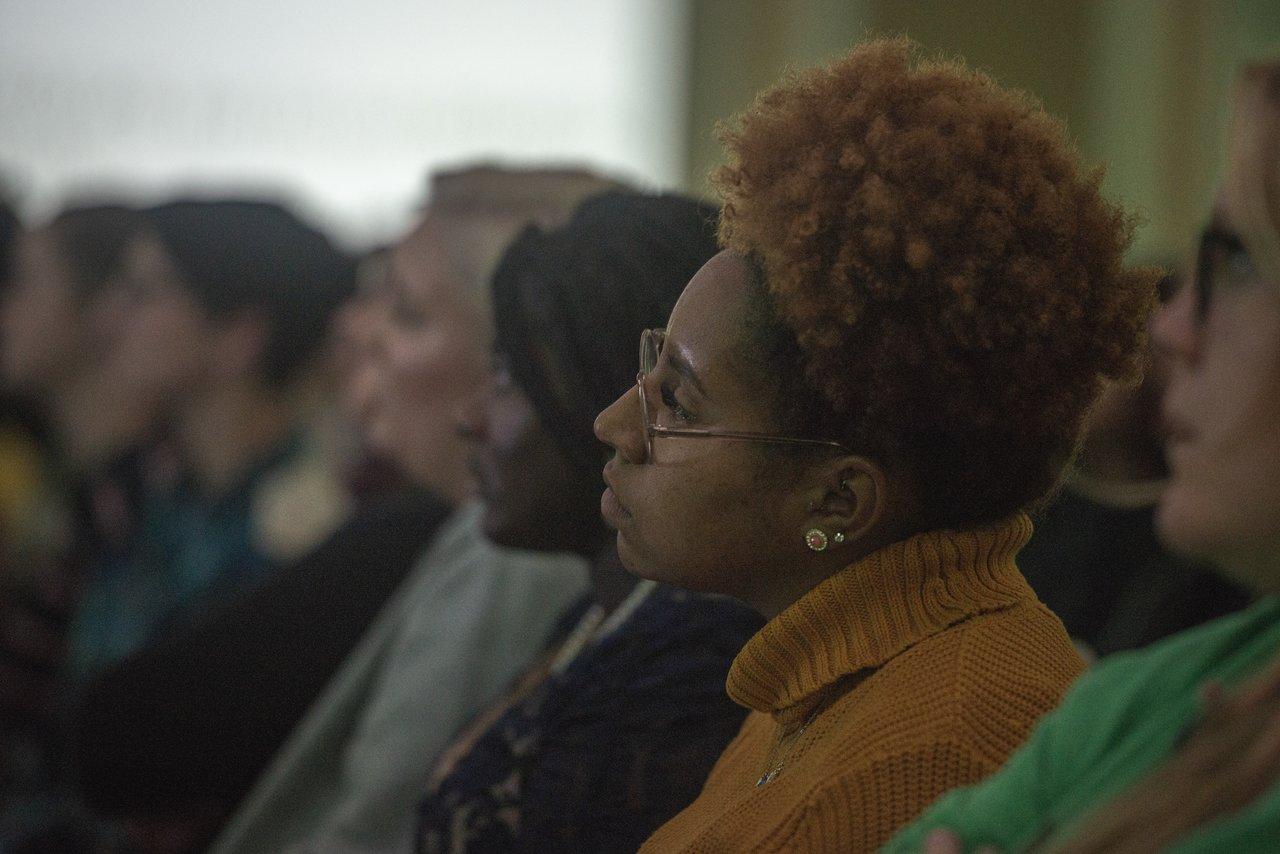
OHIO student Claire Klodell said she attended the event to recognize signs of domestic violence and to learn about Drea Kelly’s situation with R. Kelly, because he had so many people enabling him at the time.
“Being silent means being complicit and if you are surrounded by someone who is perpetrating all of these red flags and is a predator, then you are enabling them just by being silent,” Klodell said. “I think it’s very rare to have someone come on campus who is in the spotlight and has such a personal view on this topic.”
There were two additional opportunities for members of the OHIO community to meet Drea Kelly. There was a “Tea with Drea Kelly” event, which was open to women of color who are student leaders and their allies. There was also a reception with Drea Kelly, where survivors of sexual assault, domestic violence, dating violence, harassment and stalking could interact with Kelly.
Kelly’s visit was sponsored by the Women's Center, Black Student Cultural Programming Board, the Multicultural Center, Ebony Minds, Division of Student Affairs, Senate Appropriations Commission, Scripps College of Communication Diversity Committee and the Student National Medical Association.
